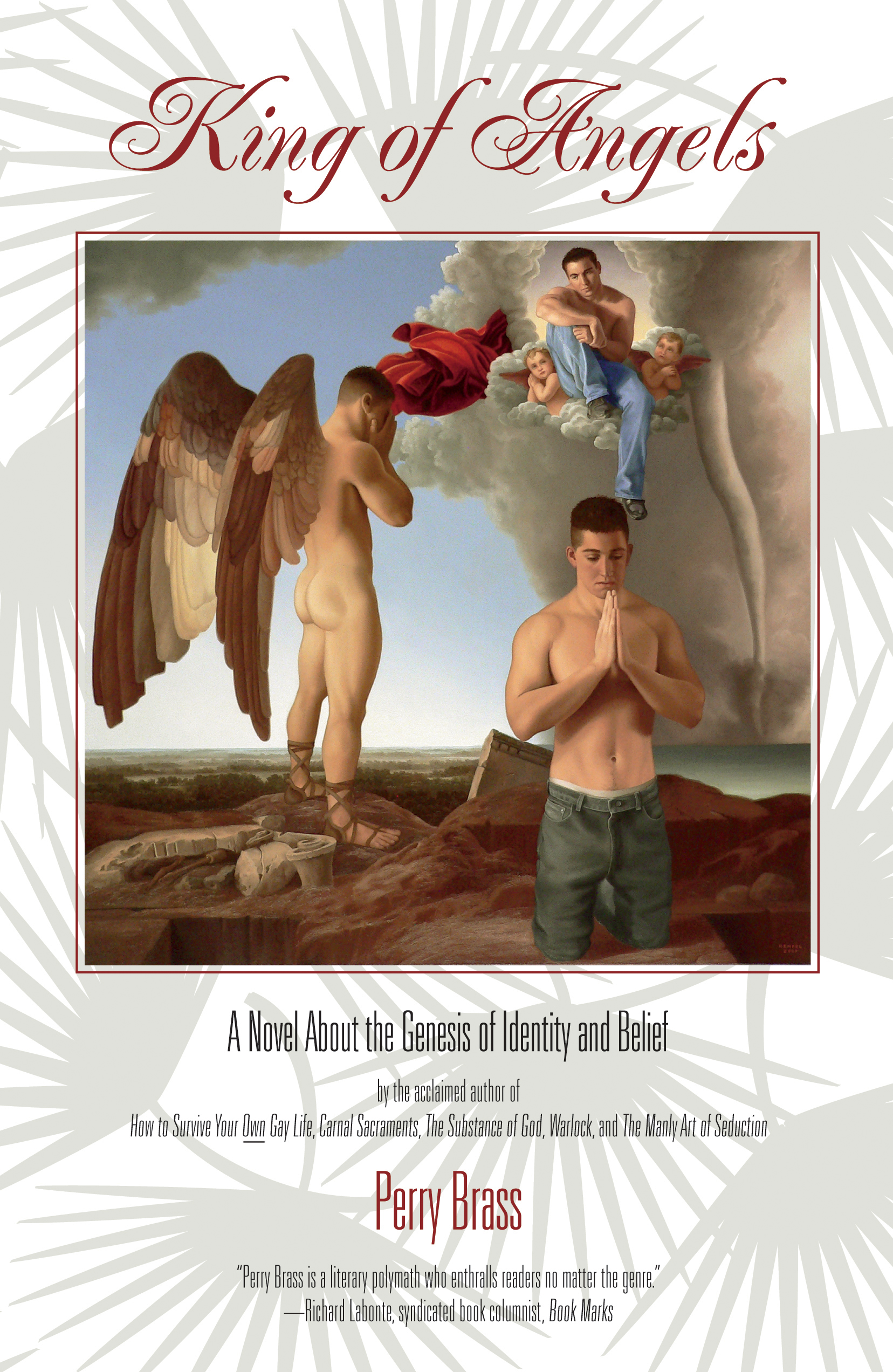
A major novel by Perry Brass about family ties and sorrows: the bond between a father and a son, and a beautiful mother and her boy in the American South during the early 1960s, when Civil Rights for blacks as well as a hidden community of gay men was emerging. King of Angels is about the search for meaning in life. And also what boys truthfully do—and talk about—at sleep-overs, in school, and secretly among themselves.
Benjamin Rothberg, already a 12-year-old master of changing identities, is the child of a marriage between a Jewish father and a classic Southern beauty. Benjamin changes from Jewish to non-Jewish, from being a smart, self-aware kid to “passing” as a regular boy, from growing into a sexually curious (and possibly gay) young man to experiencing a fragile innocence, almost in love with a pretty girl he met at a bar mitzvah party. Set in the haunting landscape of Savannah, Georgia (Midnight in the Garden of Good and Evil), during the early 1960’s (Mad Men era), King of Angels is about a significant relationship between a father and son—told from the bond that both feel despite differences in generation and the many secrets that separate them.
Bringing to life the South during the glamorous, secretive, and often violent John F. Kennedy era, King of Angels explores the difficult role of Jews in the South, the explosive race relations of this era, and the emergence of a very underground community of gay men. It is the story of boys who must fool their parents and each other in order to achieve any form of closeness. As a “half-Jew” attending Holy Nativity, a Catholic military school in Savannah, Benjy will make some of the closest friendships of his life, encounter horrible bullying, and meet a handsome monk who will find his own personal salvation in Benjy. At school, Benjy will become aware of his own heart taken with a handsome, secretive Puerto Rican male student, and the attractions of the Spirit itself in all of its revealed forms.
“Can be compared to To Kill a Mockingbird,” Lambda Literary Foundation Review, New York.
“Can be compared to John Irving’s In One Person, but it’s a stronger, more emotionally involving work.” Bay Area Reporter, San Francisco.
Finalist prestigious Ferro-Grumley Award for LGBT Fiction, from the New York Publishing Triangle, 2013.
Winner IPPY Award in Young Adult Fiction from Independent Publisher, 2013.
Genre: JUVENILE FICTION / GeneralThis book still sells well on Amazon. It has a great role for an older "adult" women and a man, and would make a superb movie set in the Deep South during the John F. Kennedy era. It has a devoted following in the U.S.
It’s only right that I should tell you about my beginnings. My name is Benjamin Rothberg and I grew up by the water in Isle of Hope, a sunburned marshy suburb about fifteen miles from downtown Savannah, Georgia. You head out on a twisting curlicue of a road to where the marshes and rivers soak into each other and dense hammocks of palmettos watch over the sea grasses with their salty-sweet stink of oysters, shrimp, catfish, and turtle shells. I grew up there with my younger sister, my mother, and my father, a salesman and a Jew. To me even at an early age, the two seemed indistinguishable: Jew. Salesman. The fast-talking Jew who never really stands still in one place and lives off his own spew of words becomes a salesman. What else could he do? What else could they do, since they were never to-the-land born?
My father was short, Mediterranean dark, and chunky, you might say, but good-looking in a distinctive, large-featured kind of way. He had dark, thick wavy hair and eyes like opaque disks of cobalt-blue glass, the sort found in old Roman ruins, that pulled you in and warmed you, and went well with his tanned skin. Dark glistening hair grew on his chest, legs, feet, and arms. It appeared like the curling leaves of anthracite-black field flowers on his hands, up to the first joints of his fingers. A lightning field of pure electricity seemed to swim around him. Men were drawn to him not simply because he could talk more than they could (any fool could do that), but because he listened as hard as he talked. My mom was almost too ridiculously his opposite: all fine length, with beautiful, streaky, ginger-ale blonde hair and long, smooth arms and legs. She’d been athletic and habitually stayed in motion, which bothered my father, who was kinetic enough to need to some kind of balancing gravity around him.
| Language | Status |
|---|---|
|
Portuguese
|
Translation in progress.
Translated by Rafael Hernandes
|